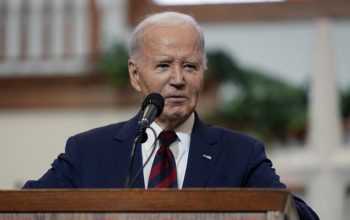news
GFDD and FUNGLODE Attend UNU Event on the Development Potential of Diasporas
April 14, 2011
Yesterday, April 13, Global Foundation for Democracy and Development (GFDD) and Fundación Global Democracia y Desarrollo (FUNGLODE) attended the panel discussion “Realizing the Development Potential of Diasporas,” organized by the United Nations University (UNU) to promote the publication of the book bearing the same name. The book, published by United Nations University Press, is a collaborative effort by the United Nations Financing
for Development Office of the Economic and Social Council (ECOSOC) and the Bureau of Development Policy of the United Nations Development Program (UNDP).
The panel featured presentations by the book’s editors: Krishnan Sharma, Economist, Financing for Development Office of the UN Department on Economic and Social Affairs; Manuel F. Montes, Chief, Development Strategy and Policy Analysis Unit, UN Department on Economic and Social Affairs; and Paul Ladd, UNDP
Advisor, and also by Selim Jahan, Director of Poverty Practice, United Nations Development Program.
The publication, which features chapters by academics, policy makers and practitioners seeks to examine the multiple ways in which Diasporas fuel development, moving beyond a solely remittance-based analysis to examine a full range of activities. The book’s contributors represent a diversity of public and private entities including Microfinance
International Corporation, Western Union, Citibank, The Indus Entrepreneurs, Highland Tea Company, ChileGlobal, World Bank, United Nations, Inter-American Dialogue, African Foundation for Development and The George Washington University.
Speakers highlighted the fact that more than ever before, people are residing in countries that are not their countries of origin. The total number of international migrants is estimated to have reached 240 million in the year 2010. The
book examines the benefits and costs of migration for both sending and receiving countries. Cross-cutting themes that are repeated throughout are: business development and entrepreneurship – how diaspora entrepreneurs differ from foreign investors, generally generating greater social capital per unit of investment; diaspora diversity – labor, entrepreneurial, and skilled diasporas – the unique nature of their contributions; and importance of widening and
mainstreaming the role of diasporas – benefits of including diasporas in public- private dialogues on policy reform.
The case studies presented explore possibilities for leveraging and transforming remittances into investment through links microfinance, rural banks, postal savings and other channels; financial and non-financial contributions to business development (i.e. skill and knowledge transfer); and the role of diasporic networks.
Editor, Manuel Montes, pointed out the important impact that the Indian and Taiwanese Diasporas have made to the development of the economies of their countries of origin. He also underscored the valuable contribution that the Russian Diaspora has had on the Israeli economy.
One of many interesting questions resulting from the dialogue was whether export of labor could serve as a development strategy.
GFDD and FUNGLODE attend seminars and
conferences about issues impacting the global community in order to remain at the forefront of academic debate and network with renowned experts, as part of their mission to bring world-class programs concerning social and economic development and democratization to the Dominican Republic.
Related link:
http://www.ony.unu.edu/events-forums/new/MDForums/2011/realizing-the-developmental-po.php






